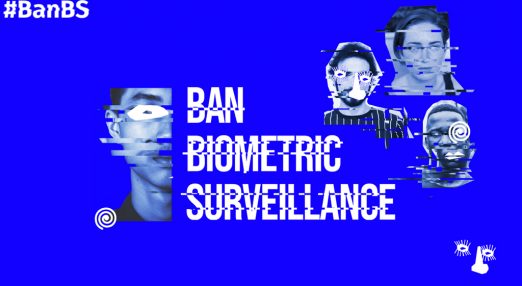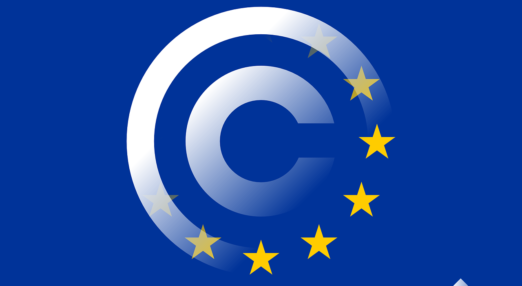EDRigram
Filter by...
-

New German government calls for European ban on biometric mass surveillance
The newly-agreed German government coalition has called for a Europe-wide ban on public facial recognition and other biometric surveillance. This echoes the core demands of the Reclaim Your Face campaign which EDRi has co-led since 2020, through which over 65 civil society groups ask the EU and their national governments to outlaw biometric data mass surveillance.
Read more
-

CJEU in surprise judgment: zero rating is illegal under EU law
Europe’s highest court has put an end to a long-standing legal battle around the EU’s Net Neutrality Regulation. In a landmark judgement published last week, the Court of Justice of the European Union (CJEU) confirmed what EDRi and its members have argued for years: that zero rating is illegal under EU law because it violates the neutrality obligations of internet access providers
Read more
-

The deterrent effect of the Julian Hessenthaler case: Criminal prosecution must not lead to diminished freedom of opinion
At the start of the trial against security adviser Julian Hessenthaler, who played a key role in the making of the so-called Ibiza video, 15 Austrian and international human rights organisations express their concern that his excessive criminal prosecution could – intentionally – have a deterring effect on future sources or whistleblowers and the exercise of freedom of opinion, freedom of the press and freedom of information. Julian Hessenthaler has been in custody since the end of 2020 (at first awaiting extradition, now awaiting trial) because of drug- and document-related charges against him.
Read more
-

Fear and loathing in the UK adequacy decision
The Council of the European Union unanimously approved the United Kingdom (UK) draft adequacy decision. In an ideal world, this would indicate that the UK offers an adequate level of protection for personal data, and would signal their willingness to retain those standards. Unfortunately, reality tells a different story, that should be worrying for human rights advocates on both sides of the channel.
Read more
-

Five reasons to claim victory on the EU Digital COVID Certificate
On 8 June 2021, the European Parliament voted on the interinstitutional compromise text on the regulation(s) on the EU Digital COVID Certificate (EU DCC, also known as the Digital Green Certificate and the European Green Pass). The proposed legislation regulates the “framework for the issuance, verification and acceptance of interoperable certificates on vaccination, testing and recovery” with aim of facilitating free movement during the COVID-19 pandemic.
Read more
-

How Europol’s reform enables ‘NSA-style’ surveillance operations
“More than 100 million”. That’s the number of encrypted messages that French and Dutch law enforcement announced they had collected after infiltrating Encrochat in 2020, a company selling encrypted communication services and devices, writes EDRi's Chloé Berthélémy.
Read more
-

EDRi-gram, 16 June 2021
Some surveillance technologies are so dangerous that they inevitably cause far more problems than they solve. The use of facial recognition and remote biometric technologies in publicly accessible spaces enables mass surveillance and discriminatory targeted surveillance. In such cases, the potential for abuse is too great, and the consequences too severe. We must ban such practices once and for all.
Read more
-

Data retention, location data, cookie banners: the ePrivacy Regulation is coming
Besides cookies, the purpose of the ePrivacy Directive is to regulate a much wider area: it contains specific data protection provisions for electronic communications data, in particular content data, traffic metadata, and location data that accrues when using the internet or talking on the phone. Importantly, it also regulates if and to what extent public authorities can access this data: Article 15 of the Directive provides that restrictions of the data protection provisions need to constitute "a necessary, appropriate and proportionate measure within a democratic society to safeguard national security".
Read more
-

Copyright Reform in Germany: Damage Reduction on Article 17
While waiting for the implementation guidelines from the European Commission and the CJEU ruling on whether upload filters are legal or not, some Member States are implementing the Directive. Germany has done some damage reduction in its implementation, according to former MEP and current GFF staff Felix Reda
Read more
-

New Cybercrime Protocol: weak safeguards against big risks of abuse
In 2017, the Council of Europe (CoE) and its Cybercrime Committee started preparing an additional protocol to the Budapest Convention on Cybercrime – a new tool for law enforcement authorities (LEAs) to have access to data held by private companies in the context of criminal investigations.
Read more
-

EU Parliament adopts the Covid Pass: risks for data protection and new forms of discrimination
At first glance, teh Digital Green Certificate may sound interesting, but upon further reflection, it quickly becomes clear that the proposed system has the potential to divide society and expose certificate holders to far-reaching surveillance by the authorities that issue the documents. Even worse, it exacerbates inequalities and increases social exclusion, shares EDRi's member epicenter.works.
Read more
-

AdTech is watching you!
The reality is that AdTech target mothers who just had stillbirths with baby ads, and serial gamblers who are trying to quit with gambling ads, or simply send creepy ads.
Read more
